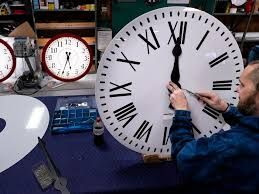
Yes, daylight saving time (DST) can affect sleeping patterns for many people. When clocks are moved forward or backward, it can disrupt the body’s natural circadian rhythm, which regulates the sleep-wake cycle based on light exposure.
Here are some ways DST can impact sleep:
Spring Forward (Losing an Hour): When clocks are set forward in spring, people lose an hour of sleep, which can lead to feeling groggy, tired, and less alert in the days following. The sudden shift can make it harder to fall asleep or wake up at the usual time, as the body takes time to adjust to the new light schedule.
Fall Back (Gaining an Hour): In the fall, clocks are set back an hour, giving people an extra hour of sleep. While this may seem like a bonus, it can still disrupt sleep patterns. Some people find they wake up earlier than usual, which can throw off the routine and cause difficulty adjusting.
Circadian Rhythm Disruption: Since the circadian rhythm is closely tied to natural light, any sudden shift in the time of sunrise and sunset due to DST can cause a temporary misalignment between the internal body clock and the external environment. This disruption can lead to difficulty falling asleep, poorer sleep quality, and daytime fatigue.
Mood and Energy Levels: Sleep disruptions caused by DST can also affect mood, energy, and cognitive performance. The adjustment period can last anywhere from a few days to a couple of weeks, depending on the individual.
For some people, the effects are mild and temporary, while others may find it more challenging to adapt. Maintaining a consistent bedtime, limiting exposure to screens before bed, and getting plenty of natural light during the day can help ease the transition during DST changes.
